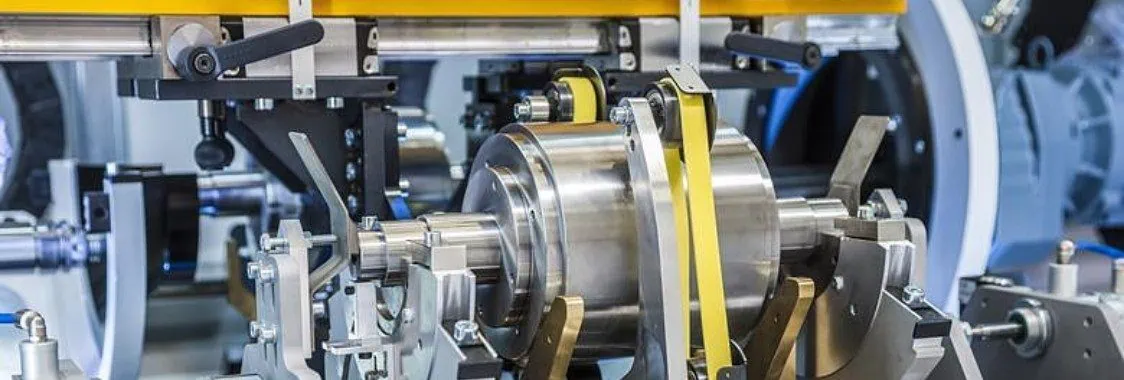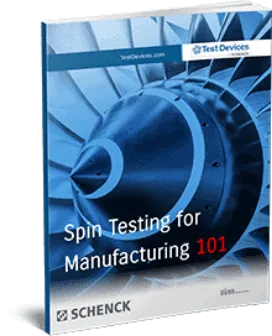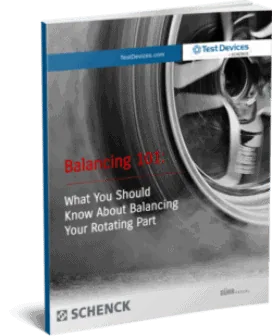We offer a range of engineering and manufacturing expertise to address your needs. For over 45 years, we have been a dependable partner to our clients, who range from start-ups to multi-national OEMs leading the development of cutting-edge technologies in the aerospace and automotive industries.
On this page, you can learn more about the industry-leading expertise and services we offer. We look forward to discussing how our services can solve your most challenging issues.
Engineering Services
Test Devices by SCHENCK’s engineering team is a tight-knit multi-disciplinary group with key competencies in mechanical, mechatronics, and industrial engineering. We offer consulting and engineering services covering machine design, automation, and analyses (advanced FEA, rotor dynamics, and test data analysis), and undertake projects to design and develop custom machines as well as complex engineering test programs.
Backed by over four decades of experience in advanced engineered testing and custom machine development, the strength of our engineering team combines analytical skills and robust hands-on experience. Our customers come to us when they seek a pragmatic and innovative partner to successfully solve challenging problems.
- Custom Equipment Design & Development
As the company’s name suggests, Test Devices by SCHENCK has been in the business of designing and building customized test machines for decades. In fact, the company’s history of equipment manufacturing preceded the launch of our services business. We specialize in designing and building machines that test high-speed rotating parts; however, our capabilities extend to a broader range of customized engineered testing and in-production test machines. Some examples of our machine design and build projects include:
- Spin Pits >
- Grinding Wheel Test Machines
- Combustion Test Rigs / Small Turbine Test Rigs
- High Speed / High Power Drive Systems
- Engineering Consulting Services
Test Devices by SCHENCK offers expert engineering consulting services in the field of high-speed rotor engineering. We routinely engage in performing structural analyses (advanced FEA), rotor dynamics analysis to resolve rotor unbalance issues, and consulting on test data measurement strategies and analysis as well as interpretation of data from engineering tests or field measurements.
Some examples of the consulting work we perform include:
- Conceptual Design Studies of Machines: Our customers approach us to perform conceptual design and feasibility studies for new machines. This work typically involves engineering analysis, development of a CAD model, a procurement study, and a feasibility study. The effort typically culminates in a presentation of the budget and schedule required to build and test the machine.
- Studies of Rotor Structural Integrity & Durability: We use FEA to investigate the stress and deformation behavior of a high-speed rotor operating in a high-temperature environment. This work entails non-linear analysis involving thermal analysis, multi-body contacts, inelastic material modeling, and a fatigue assessment.
- Safety Assessments of High-Energy Rotor Containment Structures: This effort entails an assessment of the burst energy capacity of a rotor, a detailed FEA-based study of the containment structural integrity, and a cross-correlation-based assessment compared to our experience base.
- Design and Development of Rotor Balance Tooling: This work includes careful review of a customer’s part design, assessing key dimensions, GD&T requirements, and relevant balance correction features on the part. Subsequent design work captures key features of the balance tooling to ensure a proper match of the tooling size, weight to part ratio, and its sensitivity and responsiveness to the balance machine designated for the work.
- Engineering Experimentation: We provide customers with access to our test facility to set up and conduct small rocket ejection system tests. The data from the test, including high-speed videography, allows customers to observe and assess the structural response and performance of an explosive-based stage separation system.
- Test Data Processing & Analysis: We often perform detailed and in-depth analyses of test data. This work involves the deduction and decomposition of relevant components from the original measurement, visualization of key trends and indicators, and an explanation of observations and insights gained from the study.
- Rotor Balance Engineering Services
Test Devices by SCHENCK offers leading expertise in the domain of balancing. We offer expert consultation services to help you optimize your rotor balancing strategies. We leverage a probabilistic study technique to model the impact of various manufacturing methods and determine the required steps to achieve the necessary rotor balance.
We believe rotor balancing requirements should be addressed in the rotor design phase, and the development of a robust balancing process should be a part of the manufacturing strategy. Our engineering consulting services, combined with the use of high-quality SCHENCK balancing machines, ensure customers achieve the optimum path for manufacturing high-quality rotating parts in the most economical manner.




